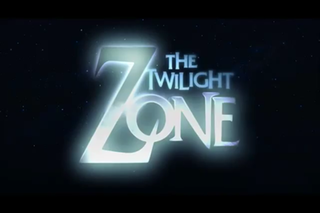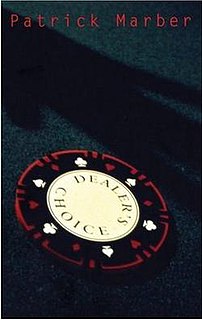
The Twilight Zone is an American media franchise based on the anthology television series created by Rod Serling. The episodes are in various genres, including fantasy, science fiction, suspense, horror, and psychological thriller, often concluding with a macabre or unexpected twist, and usually with a moral. A popular and critical success, it introduced many Americans to common science fiction and fantasy tropes. The original series, shot entirely in black and white, ran on CBS for five seasons from 1959 to 1964.

Rodman Edward Serling was an American screenwriter, playwright, television producer, and narrator known for his live television dramas of the 1950s and his science-fiction anthology TV series, The Twilight Zone. Serling was active in politics, both on and off the screen, and helped form television industry standards. He was known as the "angry young man" of Hollywood, clashing with television executives and sponsors over a wide range of issues including censorship, racism, and war.

"Time Enough at Last" is the eighth episode of the American television anthology series The Twilight Zone. The episode was adapted from a short story written by Lynn Venable. The short story appeared in the January 1953 edition of the science fiction magazine If: Worlds of Science Fiction about seven years before the television episode first aired. "Time Enough at Last" became one of the most famous episodes of the original Twilight Zone and has been frequently parodied since. It is "the story of a man who seeks salvation in the rubble of a ruined world" and tells of Henry Bemis, played by Burgess Meredith, who loves books, yet is surrounded by those who would prevent him from reading them. The episode follows Bemis through the post-apocalyptic world, touching on such social issues as anti-intellectualism, the dangers of reliance upon technology, and the difference between aloneness (solitude) and loneliness.
"A Passage for Trumpet" is episode 32 of the American television series The Twilight Zone.
"The Man in the Bottle" is episode 38 of the American television series The Twilight Zone. It originally aired on October 7, 1960 on CBS.

"Static" is episode 56 of the American television anthology series The Twilight Zone. It originally aired on March 10, 1961 on CBS.
"A Game of Pool" is episode 70 of the American television anthology series The Twilight Zone. It originally aired on October 13, 1961, on CBS. According to Rod Serling, it is "the story of the best pool player living and the best pool player dead."
"It's a Good Life" is episode 73 of the American television series The Twilight Zone. It is based on the 1953 short story "It's a Good Life" by Jerome Bixby and is considered by some, such as Time and TV Guide, to be one of the best episodes of the series. It originally aired on November 3, 1961.

"In Praise of Pip" is an episode of the American television anthology series The Twilight Zone. In this episode, a crooked bookie learns that his son has suffered a mortal wound in the Vietnam War, only to encounter a childhood version of his son.

The Twilight Zone (1985) is the first of three revivals of Rod Serling's acclaimed 1959–64 television series of the same name. It ran for two seasons on CBS before producing a final season for syndication.
"On Thursday We Leave for Home" is an episode of the American television anthology series The Twilight Zone. In this episode, a struggling colony on a distant planet awaits the arrival of a ship that will take them back to Earth. The story centers around the resulting cross-cultural encounter and the enduring ties to one's home planet, chiefly as seen through the eyes of the colony's leader, William Benteen.

The Twilight Zone is an American anthology television series created and presented by Rod Serling, which ran for five seasons on CBS from 1959 to 1964. Each episode presents a stand-alone story in which characters find themselves dealing with often disturbing or unusual events, an experience described as entering "the Twilight Zone," often ending with a surprise ending and a moral. Although predominantly science-fiction, the show's paranormal and Kafkaesque events leaned the show towards fantasy and horror. The phrase “twilight zone,” inspired by the series, is used to describe surreal experiences.

Twilight Zone is a widebody pinball machine, designed by Pat Lawlor and based on the TV series of the same name. It was first released in 1993 by Midway. This game is part of WMS' SuperPin line of widebody games alongside Star Trek: The Next Generation and Indiana Jones: The Pinball Adventure.

"Twilight Zone" is a 1982 hit by Dutch band Golden Earring. It was written by the band's guitarist George Kooymans, who got the inspiration from a book by Robert Ludlum, The Bourne Identity. "Twilight Zone" appears on their 1982 album Cut and pays tribute to the 1960s television series The Twilight Zone. It spent more than half a year on the U.S. Pop charts. It was the group's sole Top 10 Pop single on the US Billboard Hot 100 and hit No. 1 on the Billboard Top Album Tracks chart, the band's only No. 1 hit in America.
Twilight Zone may refer to:

Taylor Daniel Lautner is an American actor, voice actor, and model. He is known for playing Jacob Black in The Twilight Saga film series based on the novels of the same name by Stephenie Meyer.

"Dealer's Choice" is the third segment of the eighth episode of the first season (1985–86) of the television series The Twilight Zone.

Botifarra is a point trick-taking card game for four players in fixed partnerships played in Catalonia, the Northeast country of Spain, and parts of Aragon and Castelló province. It is a historical game also played in many parts of Spain, not only in bars and coffee shops. The game is closely related to Manille from which it takes the mechanics, but its rules induce deduction and minimise the effects of luck.

The Twilight Zone is the second of three revivals of Rod Serling's original 1959–64 television series. It aired for one season on the UPN network, with actor Forest Whitaker assuming Serling's role as narrator and on-screen host. It premiered on September 18, 2002, and aired its final episode on May 21, 2003.
"A Game of Pool" is the fifty-fifth episode and the twentieth episode of the third season (1988–89) of the revived television series The Twilight Zone. It is a remake of the original series 1961 episode of the same name.













